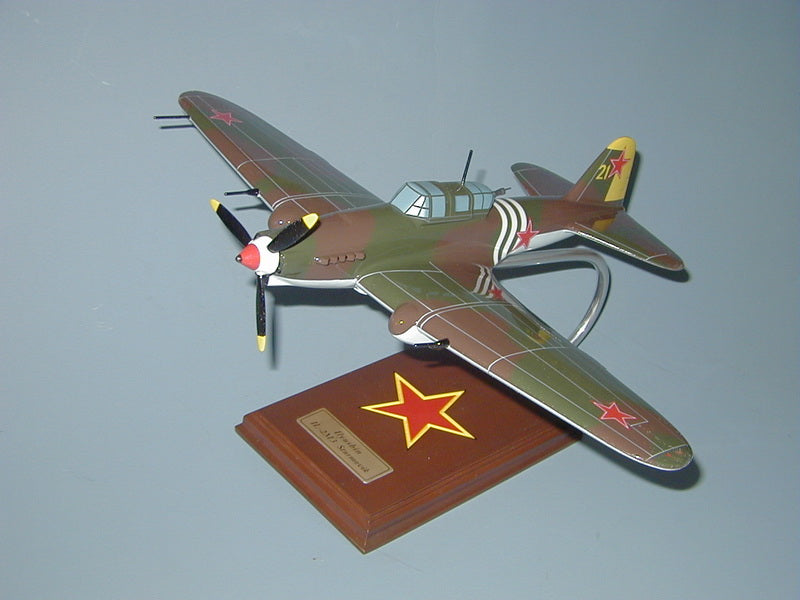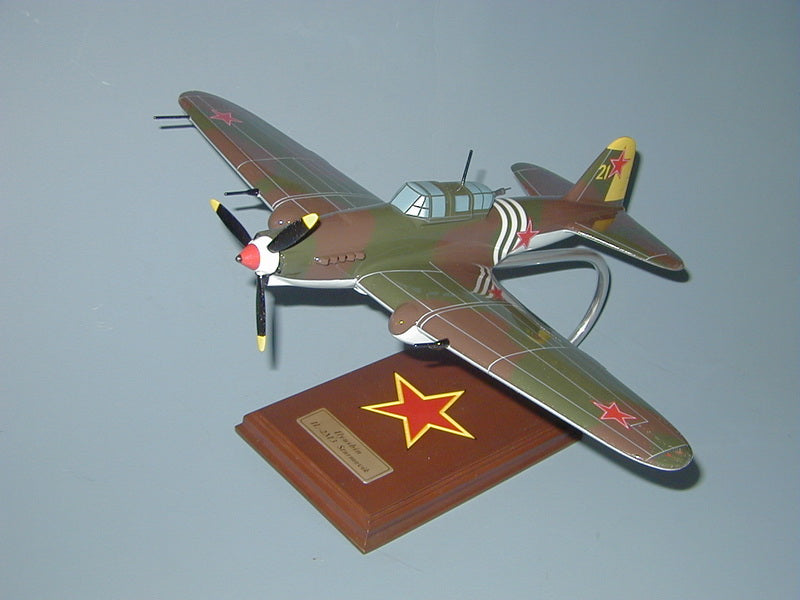The IL-2 was the symbol of Soviet air power in World War II. It is emblematic of the Soviet stress on ground attack aircraft as part of combined arms warfare. In 1938 the Ilyushin design bureau began work on a heavily-armored low-level attack aircraft, a 'shturmovik' in Russian. This word came to be synonymous with the Il-2. Entering production in 1940, the Il-2 sported an armament of two wing-mounted armor-piercing cannon and two machine guns and carried eight rockets and 400 kilograms (880 pounds) of bombs. It had protective armor up to 12mm thick around the engine and two-man cockpit, although the rear fuselage was of plywood.
The VVS (Air Forces) had 249 Il-2s in service when the war started. As aircraft factories relocated east of the Urals in 1941 to escape German bombing, Stalin characterized the Il-2 as necessary to the Red Army "like air, like bread." Production became a national priority, and the Russians built 36,163 Il-2s by November 1944, at first under appalling winter conditions as laborers erected factory walls and roofs around open-air assembly lines. Later, production rates climbed as high as 1.5 aircraft an hour at some plants, and 41,129 were built by the war's end. The first production Il-2s flew directly to frontline units before tests of the prototype were even completed. The plane's easy handling, powerful armament, and invulnerability to ground fire made it a devastating ground attack aircraft, especially with the tenacity of desperate pilots, and the Germans called it the "Black Death." But losses were extremely high from German fighters, even after a rear gun was added for self defense-14,200 were claimed downed in 1943 and 1944 alone. The Luftwaffe even formed specially-trained fighter units to target Il-2s, and several of Germany's highest-ranking aces gained most of their kills against Il-2s.
Mahogany Wood. Scale: 1/32. Wingspan 18 inches, Length 14 3/8 inches.


